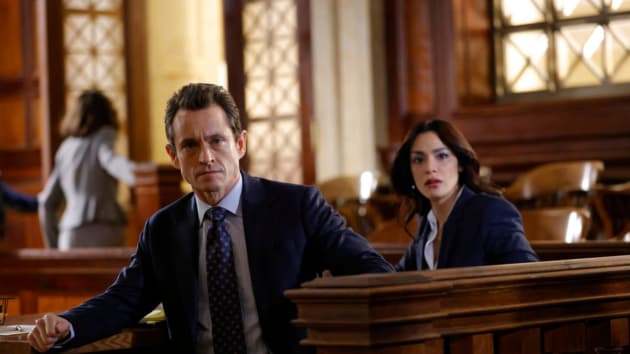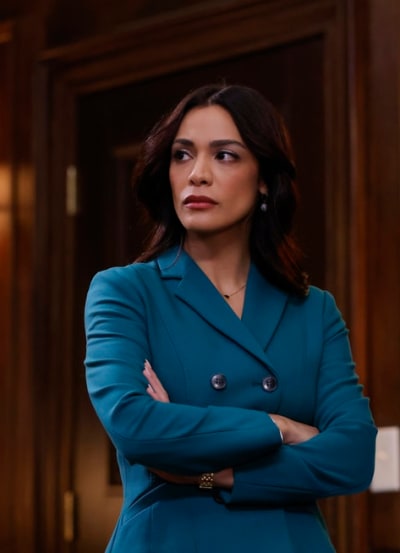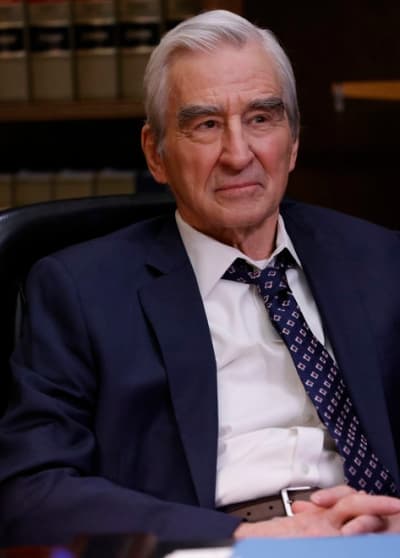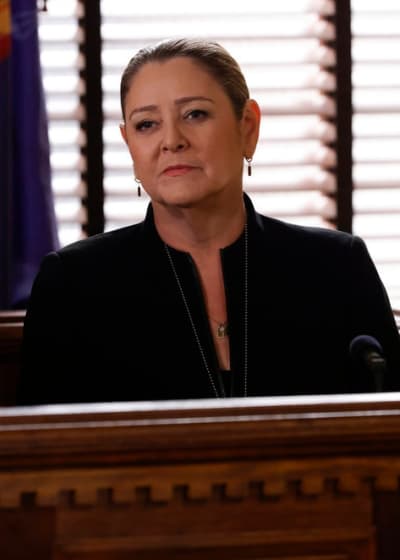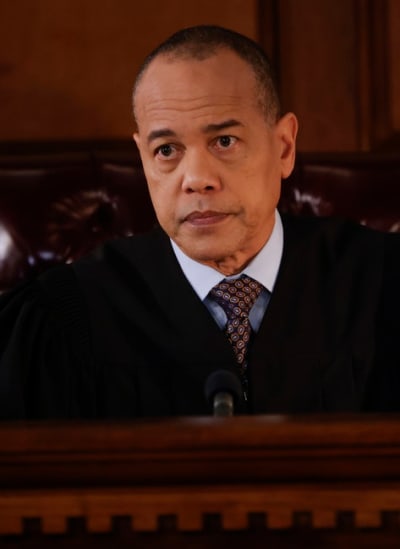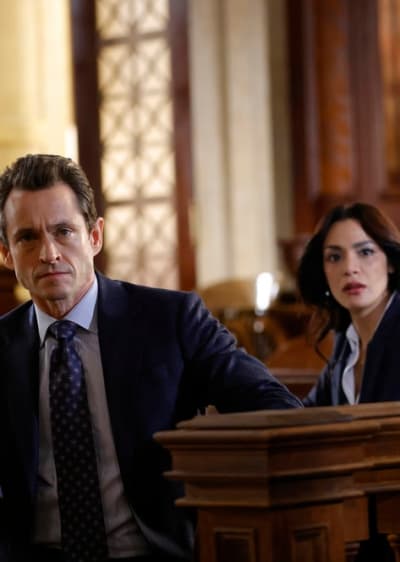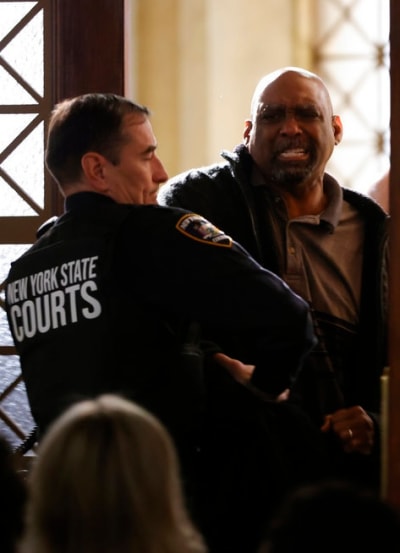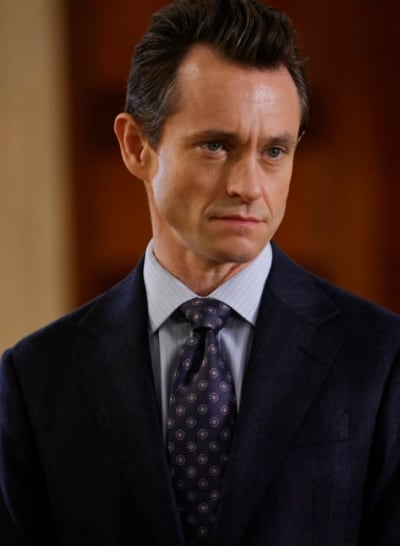It’s not easy to be a district attorney, especially in a big city like Manhattan, where competing pressures exist.
Jack McCoy should be perfectly poised to handle it. He was an ADA for years, is passionate about justice, and knows the ins and outs of the legal system.
But on Law & Order Season 23 Episode 3, McCoy again made a questionable decision based on what would most likely win the case. It was less egregious than entering a potentially fake video into evidence, but it still felt like McCoy had lost his way.
Cops should never be put on pedestals, and questioning their integrity and fitness for the job is fair game. And since Riley got tipsy on the job and punched his supervisor, he would have faced public questioning about it sooner or later.
But McCoy’s decision about this was purely political. He weighed the possibility that the cops wouldn’t share information with them in the future against the benefit to the case of discrediting a cop on the stand.
Those are significant concerns, but what about whether that was the best strategy for proving the prosecution’s case?
If there had been a rift between the DA’s office and the police, it would have been a split for the sake of drama because there was another way to approach this.
Riley’s notes about Bruce Elliot’s demeanor were based on what he observed then. More evidence was available now, so he no longer believed Elliot was innocent.
Couldn’t the prosecution have cross-examined on that basis? It seemed like that would have been a better way to go because impugning a cop on the stand might play into anti-cop bias on the part of the jury.
And if the jury didn’t find Riley credible, they might wonder whether to believe him and Shaw about what happened during the arrest.
The bigger problem is that while this decision might have been justified, McCoy has a habit of focusing only on closing the case.
Sometimes, he falls far short of ethical guidelines, such as on Law & Order Season 23 Episode 2, when he decided a jury should determine whether the evidence was real or fake.
Other times, his entire purpose in the episode seems to be to ask Price whether he thinks he can win with a controversial strategy. That makes him one-note and not all that interesting.
And that’s a shame because Sam Waterson is excellent, and McCoy has been a big part of the original Law & Order for years.
McCoy had a point when Maroun brought the grieving father’s concerns to his attention. The DA’s office can’t press charges without sufficient evidence — otherwise, people could be arrested and tried on zero evidence.
Man: You don’t get to walk away like those other people didn’t exist, like my Theresa didn’t exist!
Maroun: Sir, of course she existed. All we’re saying is we don’t have enough evidence yet to move forward.
Man: And why is that?
Maroun: You’d have to talk to the police.
Man: And they’ll tell me the same nonsense they’ve been telling me. WHy don’t you admit that y’all don’t care about poor Black people? Cause if you did, you’d have all that damn evidence you say you need.
That wouldn’t help people who are mistreated by the system!
The father’s outburst during the trial wasn’t helpful either. I’m surprised the judge didn’t declare a mistrial (or at least the defense attorney didn’t ask for one.)
No matter how strongly the judge worded his instruction that the jury was to disregard that disruption, how can the jury do so? Even if they don’t consciously consider it, it made an impression, and they can’t guarantee it didn’t bias them somehow.
I appreciated Law & Order’s effort to address the way Black victims are often ignored or mistreated, but this story didn’t do a great job of demonstrating that.
Riley couldn’t find evidence until Celeste’s case came along, no matter how hard he tried. The DA’s office couldn’t try a case without proof.
What exactly were they supposed to do?
To his credit, Jack McCoy acknowledged that it may not seem fair to press charges for only one crime instead of four, but it was the only way they could proceed.
The DA position is different than the ADA position, which is why Price and Maroun — especially Maroun — are often frustrated by McCoy’s decisions. I wish that McCoy would be more nuanced in his decision-making process.
It’s too overtly political, and he’s either purely right or wrong. I don’t remember Steven Hill’s Adam Schiff being that pretty rigid in his moral code.
And with McCoy having once been in Maroun’s position, he should have more of an inner conflict over having to focus more on winning than on justice — or at least some empathy for the ADAs that got in this for the right reasons.
Over on the police side, Jalen Shaw continued to be the best part of the hour.
Although Shaw is never shy about pointing out racism and has experienced it himself, he maintains a positive attitude.
His discussion with Vee about sex clubs and his surprise that she frequents them were more lighthearted than anything else during the hour, and his smile is infectious.
Shaw: So obviously I didn’t know Olivia Washington was a sex worker. I missed that in her file. I just t thought…
Riley: I was fishing for gossip?
Shaw: So Olivia’s case just went cold.
Riley: Yeah, no body, no witnesses.
Shaw: I think it’sstrange nobody found anything.
Riley: Yeah?
Shaw: Yeah.
Riley: You’ve been working Homicide for a few years, right?
Shaw: True.
Riley: So you know it’s not that strange in cases like that.
Shaw: Cases like that?
Riley: Missing person’s cases. Look, if you have something to say to me, bro, just say it.
Shaw: I am saying it.
Riley: Yeah? Which is what?
Shaw: That poor Black girls don’t et the same kind of love as rich white girls.
His comments about poor Black girls not getting the same attention as rich white girls were a bit heavyhanded despite their importance. It would have been better to show rather than tell this.
Imagine if Riley’s digging through old files had led to him discovering that someone in his old precinct had falsified police reports, focused exclusively on Black suspects, or otherwise displayed a callous disregard for justice that led to the case going cold.
That would have gotten the point across far better than a simple discussion about it, especially since Riley worked his ass off trying to solve that case. It also might have helped convince viewers that Riley is a new character worth his weight in gold.
It would also have allowed Riley to grapple with new awareness that not every cop treats suspects equally.
He also might have questioned his actions and wondered if he did everything he could or had looked the other way when he knew something wasn’t right.
That would be a must-watch TV!
It’s not that this story was horrible. It kept my interest throughout the hour despite the relative lack of nuance that older episodes used to be known for.
What did you think, Law & Order fanatics?
Yea or Nay, on McCoy’s attitude and how racial issues were handled in this story?
Hit the big, blue SHOW COMMENTS button and let us know.
Law & Order airs on NBC on Thursdays at 8.7c.
Jack Ori is a senior staff writer for TV Fanatic. His debut young adult novel, Reinventing Hannah, is available on Amazon. Follow him on X.
